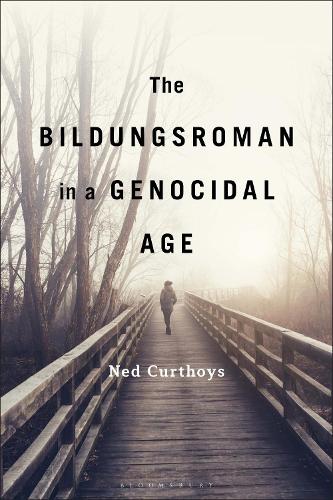
The Bildungsroman in a Genocidal Age
(Paperback)
Available Formats
Publishing Details
The Bildungsroman in a Genocidal Age
By (Author) Dr. Ned Curthoys
Bloomsbury Publishing USA
Bloomsbury Publishing USA
21st August 2025
United States
Classifications
Tertiary Education
Non Fiction
Comparative literature
Literary studies: fiction, novelists and prose writers
The Holocaust
809.39354
Physical Properties
Paperback
168
Width 152mm, Height 229mm
Description
The Bildungsroman in a Genocidal Age argues that the humanist ideal of Bildung, the cultivation of the potentialities of the self through self-reflection, travel, and varied social intercourse, has been revitalized in an age of genocidal violence. It examines the Bildungsroman as a flourishing intermedial genre encompassing contemporary historical fiction, historical feature films, and childrens and YA literature. Analysing a number of highly influential novels and films about the Holocaust and World War II (WWII), the book argues that the narrative strategies of the Bildungsroman, which includes a swerve away from home and its parochialism and moral certainties, has contributed to shaping audience perceptions of traumatic histories and their ethical implications in the twenty-first century.
The Bildungsroman in a Genocidal Age examines some of the most keenly discussed, and controversial historical fictions of recent decades including The Remains of the Day (1989), The Kindly Ones (2006, English trans. 2009), The Boy in the Striped Pyjamas (2006), and Margarethe von Trottas biopic Hannah Arendt (2012). It argues that in portraying a protagonist who defers or refuses a prescribed social destiny, these novels and films are sensitive to the Eichmann problematic of the banality of evil as formulated by Hannah Arendt. These Bildungsromane, the study suggests, are designed to address the problem of the social reproduction of normative, unimaginative, and conformist mindsets that can enable totalitarian politics and genocidal policies.
Reviews
The Bildungsroman in a Genocidal Age brings fresh and insightful approaches to contemporary fictional and cinematic texts, combining astute close readings alongside a range of theoretical prisms. Revisited as a highly mobile, fluid, multifaceted genre, the Bildungsroman in adult and childrens fiction alike is persuasively showcased as a pedagogical off-piste roadmap to equip readers, including fledgling future citizens, with the wherewithal to challenge the reductive rigidity of homogenizing dominant hegemonies. This book regards Bildung as vital questing counter-narratives of cosmopolitan ethical awakening that seek to dismantle patriarchys stranglehold on historical, religiocultural and familial
matrices, and remap the trajectory of humanitys formation.
In this scrupulous and insightful study which links Bildungsroman theory and memory studies, Curthoys once again demonstrates the unique adaptability of the Bildungsroman genre. Eschewing the simple language of paradox when describing the seemingly unlikely coupling of the Bildungsroman and the Holocaust, Curthoys demonstrates that even in its encounter with the reality of genocide, and even when it focuses on protagonists complicit in the most harrowing violence, the Bildungsroman nonetheless continues to function as a genre uniquely positioned to meticulously examine the complexities of individual self-fashioning and self-exploration. * Aleksandar Stevic, Associate Professor of English, Lingnan University, Hong Kong *
Author Bio
Ned Curthoys is Senior Lecturer in English and Literary Studies at the University of Western Australia. He is the author of The Legacy of Liberal Judaism: Ernst Cassirer and Hannah Arendts Hidden Conversation (2013).
